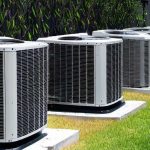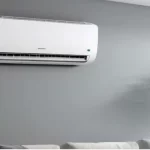When Should I Replace My Air Conditioner? A Guide for American Homeowners
Is your air conditioner showing signs of wear and tear? It may be time to consider a replacement. In this article, we will discuss the key indicators that it’s time to replace your air conditioner, the benefits of upgrading, factors to consider before making a decision, tips for choosing a new unit, the replacement process, and maintenance tips for your new system. Stay cool and comfortable with a well-functioning air conditioning unit.
Signs Your Air Conditioner Needs Replacement
Increased Energy Bills
If you’ve noticed a significant increase in your energy bills lately, it could be a sign that your air conditioner is struggling to operate efficiently. As your A/C unit ages, it tends to become less efficient, resulting in higher electricity consumption and elevated energy costs.
Constant Repairs
Is your air conditioner frequently breaking down and requiring repairs? If you find yourself constantly calling for professional assistance, it may be a clear indication that your unit is nearing the end of its lifespan. Constant repairs can quickly become costly and frustrating, so it’s worth considering a replacement.
Age of Your Air Conditioning Unit
The age of your air conditioning unit is one of the crucial factors to consider when determining if it needs replacement. On average, air conditioners have a lifespan of around 10-15 years. If your unit is approaching or exceeds this timeframe, it’s recommended to start exploring replacement options to avoid unexpected breakdowns.
Benefits of Replacing Your Air Conditioner
Improved Energy Efficiency
Replacing your old air conditioner with a new, energy-efficient model can bring significant improvements in energy efficiency. Newer units are designed to meet higher energy standards, allowing them to cool your home more efficiently while using less electricity. This not only helps reduce your carbon footprint but also saves you money on your monthly energy bills.
Enhanced Cooling Performance
A new air conditioner not only improves energy efficiency but also delivers enhanced cooling performance. With advanced technology and improved compressor systems, modern units can cool your home faster and maintain a consistent temperature throughout different areas. Say goodbye to hot spots and uneven cooling, and enjoy a more comfortable living environment.
Cost Savings in the Long Run
While replacing your air conditioner may come with an upfront cost, it can lead to significant savings in the long run. The combination of improved energy efficiency and reduced need for repairs can result in lower maintenance and utility costs over time. Additionally, newer units often come with warranties that provide coverage for potential issues, giving you peace of mind and further reducing expenses.
Factors to Consider Before Replacing Your Air Conditioner
Type of Air Conditioning Unit
When considering replacing your air conditioner, one important factor to consider is the type of unit that will best suit your needs. There are various types available, including central air conditioning systems, window units, and ductless mini-split systems. Each type has its own advantages and considerations. Central air conditioning systems provide whole-house cooling, while window units offer individual room cooling. Ductless mini-split systems offer flexibility for homes without ductwork.
Sizing and Capacity
Another crucial factor to consider is the sizing and capacity of the new air conditioning unit. Proper sizing is essential for efficient cooling and energy savings. A unit that is too small may struggle to cool your home effectively, while one that is too large can lead to frequent cycling and increased energy consumption. Consulting with an HVAC professional can help determine the appropriate size and capacity for your specific cooling needs.
Upfront Cost and Financing Options
Upfront cost is an important consideration when replacing your air conditioner. New air conditioning units can vary significantly in price, depending on factors such as brand, features, and efficiency ratings. It’s essential to set a budget and explore financing options if needed. Many manufacturers and HVAC companies offer financing plans to help make the upfront cost more manageable. Carefully weigh the long-term energy savings and benefits against the initial investment to make an informed decision.
Tips for Choosing a New Air Conditioning Unit
Energy Efficiency Ratings
When selecting a new air conditioning unit, it’s crucial to pay attention to energy efficiency ratings. Look for units with high Seasonal Energy Efficiency Ratio (SEER) ratings, as they indicate better energy performance and potential cost savings. Energy-efficient units not only help with reducing your utility bills but also contribute to a greener environment.
Technological Features
Modern air conditioning units come with advanced technological features that enhance their functionality and your overall comfort. Consider features like programmable thermostats, smart controls, and zoning capabilities. These features allow you to optimize temperature settings, control your unit remotely, and create customized cooling zones within your home.
Matching the Unit to Your Home’s Needs
It’s essential to select an air conditioning unit that is properly sized and suited to the specific needs of your home. Factors such as square footage, insulation, ceiling height, and regional climate should be taken into account. A unit that is too small may struggle to cool your home adequately, while an oversized unit can lead to inefficiency and wasted energy. Consulting with a professional HVAC contractor can help ensure you choose the right size and type of unit for your home.
The Replacement Process
Hiring Professional Services
When it comes to replacing your air conditioner, it is highly recommended to hire professional services. An experienced HVAC technician will have the expertise to properly assess your needs, suggest the right unit for your home, and ensure a seamless installation process.
Removing the Old Unit
Before the installation of your new air conditioner can take place, the old unit must be removed. This involves disconnecting the electrical components, disconnecting the refrigerant lines, and carefully uninstalling the unit. It’s important to handle this process meticulously to prevent any damage to your home or the new unit.
Installation and Testing
Once the old unit is removed, the installation of your new air conditioner can begin. The HVAC technician will carefully install the new unit, connecting it to the electrical system and the existing ductwork. After the installation is complete, thorough testing will be conducted to ensure that the new unit is functioning efficiently and effectively.
Replacing your air conditioner is a complex process that requires the expertise of professionals. From hiring the right technicians to removing the old unit and installing the new one, each step is crucial in achieving optimal performance and comfort in your home.
Maintenance of Your New Air Conditioning Unit
Regular Filter Changes
Regularly changing the air filters of your new air conditioning unit is crucial for its optimal performance and longevity. Dirty filters restrict airflow, causing the system to work harder and consume more energy. Aim to replace your filters every 1 to 3 months, or as recommended by the manufacturer. Check the filter’s condition regularly and clean or replace it when it looks dirty or clogged.
Scheduled Tune-ups
Scheduling regular tune-ups for your new air conditioning unit can help identify any potential issues and ensure efficient and reliable operation. Professional HVAC technicians can inspect the system, clean coils, check refrigerant levels, lubricate moving parts, and address any underlying concerns. Consider scheduling tune-ups annually or as advised by the manufacturer to keep your unit in top shape.
Addressing Repairs Promptly
If you notice any issues or abnormalities with your new air conditioning unit, it’s important to address them promptly. Ignoring small problems can lead to major malfunctions and costly repairs down the line. Contact a qualified HVAC technician who can diagnose the issue and make the necessary repairs. Timely action can help extend the lifespan of your unit and prevent further damage.




